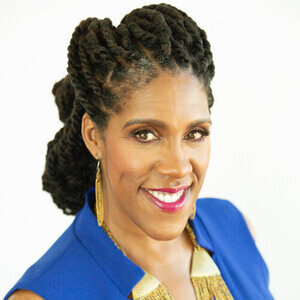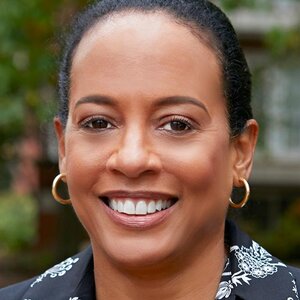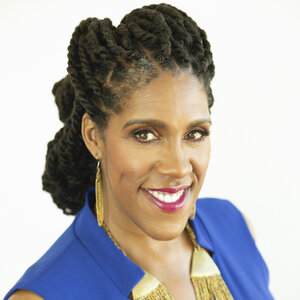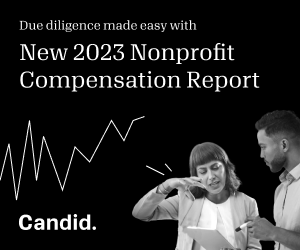Philanthropy can do more to achieve something better than Roe v. Wade

As the Ms. Foundation for Women reaches the half-century milestone this year, I can’t help but reflect on what would’ve also been the 50th anniversary of the U.S. Supreme Court decision of Roe v. Wade and what it will take to ensure that each person can thrive and is not limited by race, gender, sexual orientation, socioeconomic status or any other identifier.
What I know for sure is that it will take philanthropy rethinking and relearning about the movements that affect women. We must recognize and fund reproductive justice in all of its complexities and intersectionalities.
The movement isn’t strictly about abortion rights or birth control. It’s access to doulas and midwives. It’s readily available Plan B at pharmacies. It’s affordable fertility treatment. It’s pregnancy accommodation. It’s advocacy for parental rights and families impacted by incarceration. It’s eliminating the Black maternal health crisis. It’s education. It’s child care. History has proven that the limitations of funding in silos puts the work at risk and doesn’t truly change people’s lives.
The landmark decisions of Roe v. Wade (1973) and Planned Parenthood v. Casey (1992), which reaffirmed the decision and argued that abortion allowed women to “participate equally in the economic and social life of the Nation” had an enormous impact on women and families. And yet, we know that it still wasn’t enough for too many—in particular for communities of color. The Hyde Amendment (1977) gutted economically equitable access to abortion by barring the use of federal Medicaid funds for abortion in most cases, devaluing the lives of those who rely on federal funds for health care, and philanthropy did not show up.
Today, total philanthropic giving amounts to just $5.48 per year per woman or girl of color in the United States, accounting for just 0.5 percent of the total $66.9 billion given by foundations. It’s abysmal and not even close to what is needed to create the world we say we want.
The Dobbs v. Jackson Women’s Health Organization decision has now destroyed almost 50 years of precedent and has put people’s lives at risk—especially those already under multiple systems of oppression. Medicaid and social supports don’t go far enough, people have to travel across multiple state lines to get care, and criminalizing abortion only perpetuates white supremacy and disproportionately affects immigrants and people of color.
Research shows that abortion access has a profound effect on women and families’ financial security and prospects. When a person is able to determine whether, when, and under what circumstances they become a parent, it influences educational attainment, labor force participation, and earnings. It impacts the household environment children grow up in. Given that 49 percent of abortion patients are living below the poverty line and 59 percent already have children, not to mention the lack of child care and unpaid leave, the economic implications are crushing.
We know that the Black-white wealth gap is as wide as it was in the 1960s, with the extreme lack of wealth transfer perpetuating generational inequity and poverty. Philanthropy didn’t fund the movements to take down the Hyde Amendment, and now that we know better, philanthropy has a responsibility to do better in this critical moment in the fight for gender and racial equity—a moment that will impact generations to come. We need to trust women.
They have the solutions and like the activists and mothers before them, today’s grassroots leaders are at the forefront of change and have been at work building a reproductive justice movement that will create something better than Roe v. Wade for us all.
We can’t ever let the spotlight go dark again on the need and importance of supporting those most impacted—people of color. Too often organizations are funded based on one particular issue area or population, and that doesn’t create the greatest impact.
The Ms. Foundation was in the room when the term “reproductive justice” was first coined by Black women. We’ve long supported this movement by working with partners such as SisterSong, NAPAFW (National Asian Pacific American Women’s Forum), and the National Latina Institute for Reproductive Justice and by implementing expansive strategies like our Birth Justice Initiative.
I strongly believe that the way forward is heavily investing in feminist frameworks, movements, and organizing that advances the social, economic, and political equality of all genders. That is how we create a democracy and a self-determining society.
In practice, yes, that looks like increasing general operating dollars. It means philanthropy funding this moment in time, as well as funding for the future so we’re not having this conversation again in another 50 years.
It also means creating and holding space for leaders across movements and sectors, committing to long-term, multiyear investments, and loosening funding restrictions and requirements. It means addressing the current abortion crisis with a holistic approach. It means going beyond the standard.
Roe is gone, but there is momentum and possibility for progress. To achieve something better, philanthropy must be as radical and innovative as the people it serves.
Teresa C. Younger is president and CEO of the Ms. Foundation for Women.






